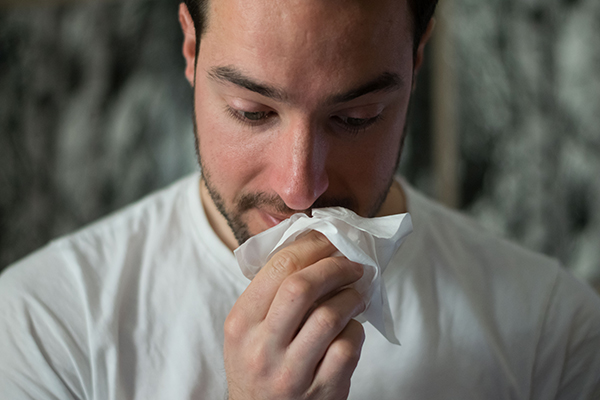Allergy season concerns during the pandemic
April 13, 2020
Share

It’s spring and that means allergy season is on the way. But this year it will be arriving in the midst of a global pandemic and with this comes a host of new concerns to contemplate. The Queen’s Gazette spoke with Dr. Anne Ellis (Medicine), a Canadian-leading expert in allergies.
How is COVID-19 making this year more challenging for allergy suffers?
A: Reduced access to primary care will be an issue for patients who suffer from seasonal allergies. Fortunately, most if not all allergy practices have converted to telemedicine and/or virtual care so people can still get in touch with their treating allergist at this time, and pharmacies remain open.
How are seasonal allergy symptoms similar and different to COVID-19?
A: Seasonal allergies (also known as hay fever) present with symptoms of sneezing, runny nose, nasal itch, and nasal congestion, along with associated eye symptoms like itchy/watery or red/burning eyes. Occasionally people will develop cough, especially if they also have asthma, due to post-nasal drip.
COVID-19, while it can present with cough and other respiratory symptoms, is also characterized by fever, sore throat, and, as new studies show in 40 to 50 per cent of cases, gastrointestinal symptoms (GI) like diarrhea. Seasonal allergies will not cause a fever and while itchy throat may be present, it will not be accompanied by a sore throat. GI symptoms would be extremely atypical.
Q: Are there any allergy medications that people should avoid taking that may lower their immune system?
A: It is important for all patients to continue to take all of their prescribed medications. While medication does have the word “steroid” in the name, the doses used to treat asthma or allergic rhinitis are not immunosuppressive, and stopping them (especially asthma inhalers) can lead to a worsening of underlying conditions, and may lead to an asthma attack that necessitates a trip to the hospital.
If you have been prescribed an inhaled corticosteroid or are receiving chronic low dose prednisone for asthma, the risk of stopping these drugs far outweighs any potential benefits.
Q: Will allergy season be worse or better because there are few people out and about? Could people with allergies actually benefit by staying at home?
A: We anticipate no changes to the pollen season itself so some people may experience more allergy symptoms this year if they are enjoying the sunshine while physical distancing more than they would normally at this time of year (e.g. office workers who are typically indoors much of the time). Continue to do things like keep windows closed and, when it gets warm enough, turn on air conditioning to minimize the pollen burden in your home.
Q: Any other thoughts or comments?
A: Practicing social/physical distancing, strict adherence to hand hygiene procedures, and staying home as much as possible are still your best defense against COVID-19, regardless of whether you have allergies, asthma, or both. Symptoms of allergies may make it hard to not touch your face, so your rigorous attention to hand washing is essential at this time.